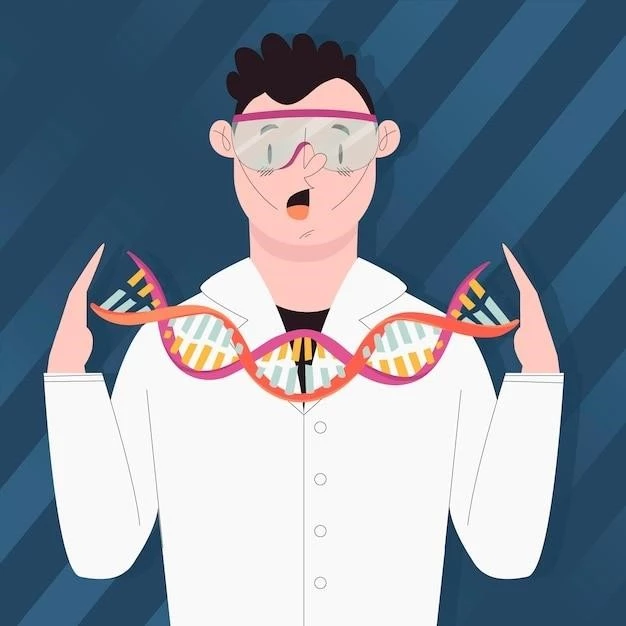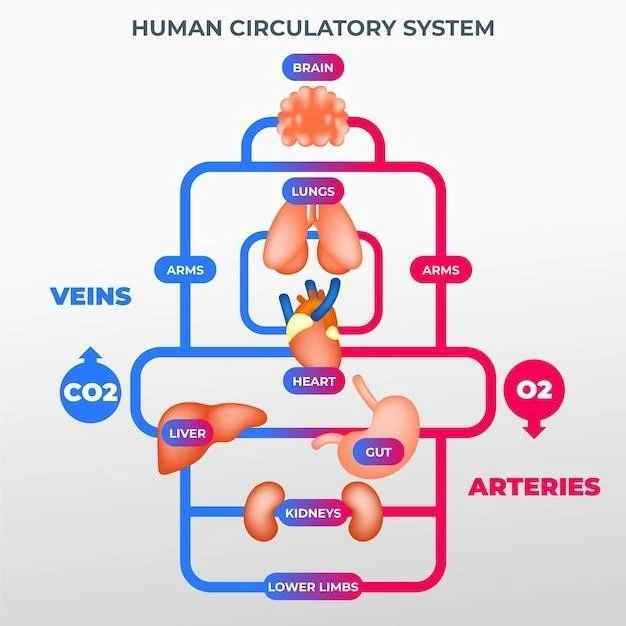Symptoms of Monosomy 7q21
Monosomy 7q21 can present with physical symptoms‚ developmental delays‚ and blood disorders. These manifestations vary in severity and can impact the overall health of individuals.
Physical Symptoms
Physical symptoms of Monosomy 7q21 may include facial abnormalities‚ skeletal anomalies‚ heart defects‚ and low muscle tone. These signs can aid in the diagnosis of the condition and guide appropriate medical management.
Developmental Delays
Individuals with Monosomy 7q21 often experience developmental delays‚ including delayed speech and motor skills‚ cognitive impairments‚ and behavioral challenges. Early intervention and tailored therapies can help address these delays and improve outcomes.
Blood Disorders
Monosomy 7q21 can lead to various blood disorders such as anemia‚ thrombocytopenia‚ and bone marrow failure. Regular monitoring of blood counts and appropriate medical interventions are crucial in managing these hematologic complications effectively.
Causes of Chromosome 7 Disorders
Chromosome 7 disorders can result from genetic mutations‚ environmental influences‚ and spontaneous genetic changes. Understanding these causes is essential for accurate diagnosis and targeted management strategies.
Genetics and Inheritance
The development of Chromosome 7 disorders often involves genetic mutations‚ both inherited and de novo. Understanding the inheritance patterns and genomic alterations is crucial for assessing the risk of recurrence and providing appropriate genetic counseling to affected individuals and families.
Environmental Factors
Environmental factors play a role in the development of Chromosome 7 disorders. Exposure to toxins‚ radiation‚ and certain medications can contribute to genetic mutations leading to these conditions. Understanding and minimizing environmental risks are important in disease prevention and management.
Spontaneous Mutations
Spontaneous mutations can lead to Chromosome 7 disorders‚ impacting gene function and cellular processes. These genetic changes can occur randomly during cell division and are not typically inherited. Research into the mechanisms of spontaneous mutations is essential for understanding disease etiology and developing targeted therapies.
Treatment Options for Monosomy 7q21
Various treatment options for Monosomy 7q21 include bone marrow transplant‚ blood transfusions‚ and supportive care. These interventions aim to manage symptoms and improve the quality of life for affected individuals.
Bone Marrow Transplant
A bone marrow transplant is a viable treatment option for Monosomy 7q21 patients to replenish healthy blood-forming cells. This procedure can help address blood disorders and potentially improve the overall prognosis for individuals with this chromosomal abnormality.
Blood Transfusions
Blood transfusions are a crucial component of treatment for Monosomy 7q21 individuals with blood disorders. By replenishing essential blood components‚ transfusions can help maintain appropriate blood counts and improve overall well-being in affected patients.
Supportive Care
Supportive care plays a critical role in the management of Monosomy 7q21 by addressing symptoms‚ providing emotional support‚ and enhancing quality of life. Multidisciplinary healthcare teams offer tailored supportive interventions to meet the unique needs of affected individuals and their families.
Understanding Chromosome Abnormalities
The comprehension of Chromosome Abnormalities is crucial for accurate diagnosis and management.
Types of Chromosome Abnormalities
Various types of Chromosome Abnormalities exist‚ including deletions‚ duplications‚ translocations‚ and inversions. Understanding these alterations is pivotal for elucidating genetic conditions and guiding appropriate medical interventions for affected individuals.
Diagnostic Techniques
Diagnostic techniques for Chromosome Abnormalities include karyotyping‚ fluorescence in situ hybridization (FISH)‚ and chromosomal microarray analysis. These methods enable precise identification of genetic variations and aid in the accurate diagnosis of chromosomal disorders.
Impact on Health
Chromosome abnormalities can have substantial impacts on health‚ influencing physical development‚ organ function‚ and susceptibility to diseases. Understanding the health implications of these genetic variations is crucial for providing appropriate medical care and support to individuals affected by chromosomal disorders.
Prognosis for Monosomy 7q21 Patients
Understanding the prognosis for individuals with Monosomy 7q21 is essential.
Survival Rates
Evaluating the survival rates of individuals with Monosomy 7q21 is crucial for predicting outcomes and guiding treatment decisions. Research on survival data helps healthcare providers offer appropriate care and support to patients with this chromosomal abnormality.
Long-Term Outlook
Considering the long-term outlook for individuals with Monosomy 7q21 is essential for planning ongoing care and addressing potential challenges. Monitoring health status and addressing evolving needs can significantly impact the quality of life for patients with this chromosomal condition.
Quality of Life
Assessing the quality of life for individuals with Monosomy 7q21 is crucial for understanding overall well-being and addressing psychosocial aspects of care. Supportive interventions and holistic approaches can enhance the quality of life for patients affected by this chromosomal abnormality.
Genetic Counseling for Chromosome 7 Conditions
Providing Genetic Counseling is paramount for individuals with Chromosome 7 conditions.
Importance of Genetic Counseling
The Importance of Genetic Counseling for individuals with Chromosome 7 conditions lies in providing comprehensive information‚ risk assessment‚ and support. Genetic counselors play a key role in empowering patients and families to make informed decisions about their healthcare and genetic risks.
Family Planning
Family Planning is critical for individuals with Chromosome 7 conditions to understand genetic risks‚ explore reproductive options‚ and make informed choices. Genetic counseling supports families in navigating family planning decisions and addressing the hereditary implications of these chromosomal disorders.
Risk Assessment
Conducting Risk Assessment for individuals with Chromosome 7 conditions is vital for evaluating genetic predispositions‚ assessing potential health outcomes‚ and personalizing medical care. Genetic counselors employ risk assessment strategies to provide tailored guidance and support based on an individual’s unique genetic profile.

Research Advances in Monosomy 7q21
Exploring the latest Research Advances in Monosomy 7q21 is crucial for understanding the condition’s complexities.
Current Studies and Findings
Exploring Current Studies and findings in Monosomy 7q21 provides insights into new diagnostic and therapeutic approaches.
Potential Therapies
Exploring Potential Therapies for Monosomy 7q21 represents hope for improved treatment outcomes and enhanced quality of life for affected individuals.
Future Directions
Looking towards Future Directions in research for Monosomy 7q21 can pave the way for innovative treatments and advancements in understanding this chromosomal abnormality.
Support Services for Chromosome Disorders
Accessing support services is vital for individuals affected by Chromosome Disorders.
Patient Support Groups
Patient Support Groups provide valuable emotional and practical assistance for individuals navigating challenges associated with Chromosome Disorders. Connecting with peers can foster a sense of community and shared understanding.
Counseling Services
Counseling Services offer mental health support and guidance to individuals and families affected by Chromosome Disorders‚ helping them cope with emotional stress and develop effective coping strategies for improved well-being.
Financial Assistance Programs
Financial Assistance Programs can provide essential aid to individuals facing the financial burden of managing Chromosome Disorders‚ ensuring access to necessary medical care‚ therapies‚ and support services for optimal health outcomes.
